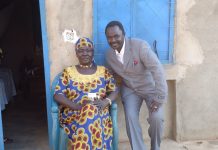Kauda-Musa John
The recent Khartoum war that erupted between the Sudanese Armed Forces (SAF) and the Rapid Support Forces (RSF) has left thousands dead, many of whom remain unburied, while thousands face hunger and insecurity. Millions are internally displaced and thousands have sought refuge in neighboring countries.
Most foreigners have returned back to their countries, while the rest of the poor marginalized Africans are left with no option other than to die or disappear and resettle in their already deprived regions.
In recent days, the number of returnees from Khartoum to South Kordofan and other region, has been increasing day by day than it has ever been before. As a result, the prices of basic commodities are rising, which might lead to starvation of many who cannot afford.
One can clearly predict that as more people continue to flee to south Kordofan, and other regions, disruption of daily life and basic supplies is set to increase in the Sudan People’s Liberation Movement (SPLM) control areas.
In other words, marginalized regions are receiving refugees of war, and have to share their already strained resources, and bare the consequences of high demand on basic goods, along with rising prices.
This is a humanitarian crisis first and foremost, and should be treated as such. The situation in Kauda is only a testament to the deep structural problems in Sudan, where marginalization occurs both in peace and in war, and this conflict is no exception.
And designating this conflict as a humanitarian crisis which impacts the already marginalized African population, helps in shaping our conversation with the international community. In Kauda, we are asking “what support can we offer to the returnees and how? How do we prioritize this support, given the lack of resources? And how can we contribute to the effort to end the Khartoum war?”.
The international community must respond to this humanitarian issues with utmost urgency. In Kauda, there is a need for building resettlement sites as we anticipate larger groups of returnees, which have now exceeded 200 families. A strategic action plan is needed, before this refugee wave creates another humanitarian crisis.
Finally, the media, whether Sudanese or international, should report about this conflict, bearing in mind the multilayered suffering of Sudan’s marginalized communities, and the lack of safety nets. This war is bound to exacerbate already unbearable living conditions for millions of Sudanese.









